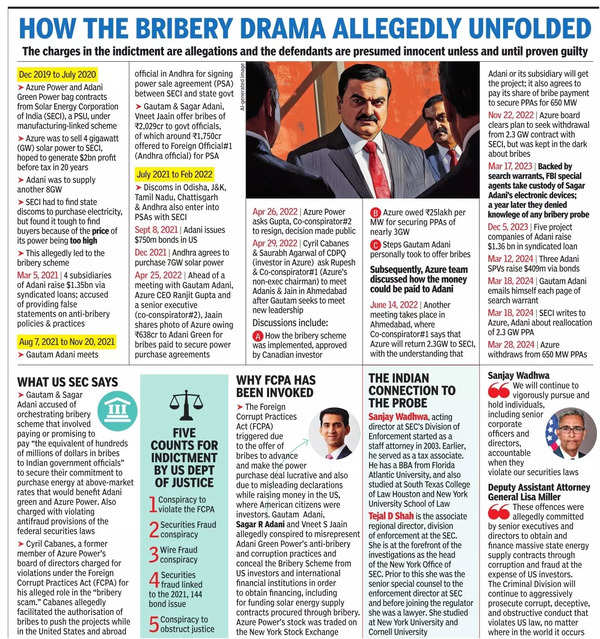Breaking News | Parliament Winter Session: Congress Demands Discussion Over Gautam Adani, Manipur
.
.

The Winter Session of the Indian Parliament is one of the most anticipated times of the year for political analysts, journalists, and the general public alike. It is a period when key national issues are debated, and the government’s policies are examined in detail.
One of the most significant political developments in recent years has been the increased focus on two major issues: the rise of business magnate Gautam Adani and the ongoing situation in Manipur. During the 2024 Winter Session, the Indian National Congress (INC) demanded an urgent discussion on both of these topics, marking a critical moment in the ongoing political discourse in the country.
The call for a discussion on Gautam Adani, the billionaire and chairman of the Adani Group, comes amid allegations of cronyism and controversies surrounding the business tycoon’s rapid rise in wealth and influence. Similarly, the demand for a discussion on Manipur comes against the backdrop of the ongoing ethnic violence and turmoil in the state. For the Congress party, these two issues represent an opportunity to critique the policies and actions of the ruling Bharatiya Janata Party (BJP), led by Prime Minister Narendra Modi.
In this article, we will explore the context behind Congress’s demands for discussions on Gautam Adani and Manipur, the broader political implications of these issues, and what the outcomes might be for the Winter Session of Parliament.
Gautam Adani: A Symbol of Crony Capitalism?

Gautam Adani, the founder and chairman of the Adani Group, has become one of India’s most controversial figures in recent years. Known for his business empire spanning sectors like infrastructure, energy, and ports, Adani’s rise to prominence has been meteoric. However, his relationship with the government, particularly the BJP, has drawn intense scrutiny. Critics argue that Adani’s growth is the result of favorable treatment from the Modi administration, a phenomenon often described as crony capitalism.
In 2024, the issue of Adani’s business practices became a central focus for the Congress party, which demanded a discussion in Parliament about the alleged favoritism that Adani has allegedly received from the government. The Congress party’s demand for a debate on this issue stems from a broader narrative that the BJP has been overly sympathetic to certain business interests, particularly those close to the ruling party. The opposition has raised concerns about the transparency of government contracts and the alleged conflicts of interest between the state and private enterprises.
The Hindenburg Report and Its Fallout
The call for a discussion on Gautam Adani gained further momentum after the release of a report by the American financial research firm Hindenburg Research in early 2023. The report alleged stock manipulation, accounting irregularities, and other financial misconduct by the Adani Group. According to the report, the group used offshore shell companies to inflate stock prices and mask the actual value of its companies.
The fallout from the Hindenburg report was significant, with Adani’s companies seeing a sharp decline in market value. This sparked a nationwide debate over the business practices of one of India’s wealthiest men and whether these practices were being shielded by political influence. The opposition, particularly the Congress party, seized on this moment to accuse the government of turning a blind eye to corporate malfeasance and suggested that Adani’s influence in the political landscape was a potential conflict of interest.
For the Congress, Adani’s close ties with the Modi government provide a compelling case for demanding a parliamentary discussion. They argue that the government has failed to address these allegations adequately, and there is a need for accountability and transparency in how large businesses operate in the country. Congress has also criticized the lack of a thorough investigation into the Hindenburg allegations, calling it a classic example of the government protecting its allies.
The Role of Corporate Influence in Politics
At the heart of the debate over Gautam Adani lies the larger issue of corporate influence in Indian politics. Many critics argue that Adani, along with a few other prominent business figures, has grown into a symbol of the cozy relationship between big business and the ruling party. The Congress party has repeatedly accused the BJP of promoting crony capitalism — a system where businesses thrive because of their ties with the government, rather than their merit or market performance.
The Congress’s demand for a discussion on Adani also reflects broader concerns about the concentration of economic power in the hands of a few individuals or families, especially when those individuals are perceived to have political backing. This issue has far-reaching implications, as it raises questions about the fairness of the market, the accountability of government institutions, and the role of business in shaping public policy.
The Adani Group, for its part, has denied all allegations made by Hindenburg Research and has called the report malicious and baseless. They have also pointed out that the company’s growth has been driven by merit and business acumen, not political connections. Nonetheless, the controversy surrounding the Adani Group continues to fuel political discussions, especially as the Winter Session of Parliament approaches.
Manipur: Ethnic Violence and the Demand for Action
In addition to its call for a discussion on Gautam Adani, the Congress party has also demanded a debate on the ongoing violence in Manipur. The northeastern state of Manipur has been gripped by ethnic violence since May 2023, when clashes between the Meitei community and the Kuki-Zo tribes escalated into widespread riots. The violence has resulted in the loss of hundreds of lives and the displacement of thousands of people, creating a humanitarian crisis that has drawn national and international attention.
Manipur, which shares borders with Myanmar, has long been a hotspot for ethnic tensions. The state has a complex demographic composition, with the Meitei community being the majority in the valley and the Kuki-Zo tribes living primarily in the hills. Over the years, tensions between these communities have been simmering, with issues such as affirmative action, land rights, and political representation being key points of contention.
The violence in Manipur is seen by many as a reflection of deeper issues within Indian society, including the challenges of managing ethnic and religious diversity. The Congress party, along with other opposition parties, has accused the government of failing to take swift and decisive action to quell the violence and protect the citizens of Manipur. The situation has raised critical questions about the government’s ability to manage inter-ethnic conflicts and provide adequate security and relief to affected communities.
The Government’s Response
The response of the BJP-led government to the violence in Manipur has been a subject of intense debate. Critics argue that the government has been slow to act, both in terms of providing adequate security and addressing the underlying causes of the conflict. The Home Minister, Amit Shah, visited Manipur in the aftermath of the violence, but opposition leaders have pointed out that the violence continued even after his visit, leading to questions about the effectiveness of his intervention.
The Congress party, in particular, has called for a detailed discussion on the situation in Manipur during the Winter Session. They argue that the government has failed to bring the situation under control, and there is a need for a more comprehensive response, which includes greater engagement with local communities, a commitment to peace talks, and a long-term strategy for resolving the ethnic divisions in the state.
For the Congress, the demand for a discussion on Manipur is also a way to challenge the government’s record on internal security and governance. The violence in Manipur has been a major embarrassment for the BJP, especially as it raises questions about the party’s ability to maintain peace and order in the country’s northeastern region, an area that has historically been underrepresented in mainstream political discourse.
The Political Implications of the Demand for Discussion
The Congress party’s demands for a discussion on both Gautam Adani and Manipur carry significant political implications. For one, these issues allow the Congress to reposition itself as a vocal and credible opposition party, capable of holding the ruling BJP accountable. The demand for discussions on Adani and Manipur is not only a way for the Congress to target the BJP’s leadership but also to mobilize its base around issues of governance, transparency, and internal security.
The ongoing debate over Adani reflects larger concerns about the influence of corporate power in Indian politics, while the demand for a discussion on Manipur highlights the growing concerns about ethnic violence and the government’s handling of such crises. Both issues serve as a point of contention between the Congress and the BJP, providing a platform for the opposition to criticize the government’s policies and actions.
As the Winter Session progresses, the response of the government to these demands will be crucial. The BJP is expected to defend its record on both issues, with the Prime Minister and other leaders likely to reject accusations of cronyism or failure to address the Manipur crisis. However, the persistence of these issues in public discourse signals that the Congress will continue to press the government on matters of accountability and governance.
Conclusion
The 2024 Winter Session of the Indian Parliament is shaping up to be a critical moment for political discourse in the country, with the Congress party demanding discussions on two significant issues: the business practices of Gautam Adani and the ongoing ethnic violence in Manipur. For the Congress, these issues are an opportunity to challenge the BJP’s record on governance, transparency, and internal security.
The demand for a discussion on Adani reflects broader concerns about the relationship between business and politics in India, while the call for a debate on Manipur highlights the urgent need for a comprehensive response to the ethnic violence in the state.
These issues are likely to dominate political discussions in the coming weeks, with significant implications for both the ruling party and the opposition.
Ultimately, the Winter Session provides a vital platform for Parliament to address these critical national issues and ensure that the voices of all citizens, including those affected by violence and corporate malfeasance, are heard.
News
Scandalous! Celebrity Caught in a Shocking Incident with a Fan in Public!”
Shocking Incident Involving Kareena Kapoor: A Fan Misbehaves in Front of the Media In a deeply unsettling incident, Bollywood actress Kareena Kapoor Khan found herself at the center of an unexpected and distressing situation when a fan reportedly touched her…
End of content
No more pages to load






